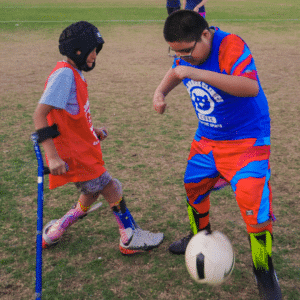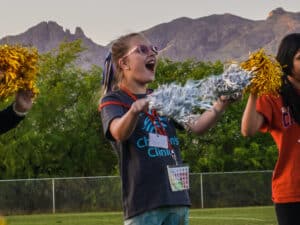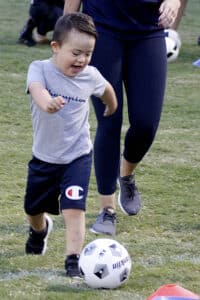Adaptive sports offer a range of physical, emotional, and social benefits for children with disabilities. These sports are specifically designed to accommodate individual needs and abilities, ensuring that all children can participate and experience the joy of physical activity. Here are some of the benefits of adaptive sports for children:
- Physical Health:
- Improved Strength and Coordination: Adaptive sports help children develop better muscle strength, coordination, and balance through regular physical activity.
- Cardiovascular Health: Engaging in sports promotes cardiovascular fitness, helping to maintain a healthy heart and circulatory system.
- Bone Health: Weight-bearing activities in adaptive sports can contribute to better bone density and overall bone health.
- Motor Skills: Children can enhance their fine and gross motor skills through the various movements and challenges presented by adaptive sports.
- Psychological Well-being:
- Self-Confidence: Participating in sports empowers children by showing them that they can overcome challenges and achieve goals, boosting their self-confidence.
- Self-Esteem: Success and improvement in adaptive sports can lead to a more positive self-image and higher self-esteem.
- Stress Relief: Physical activity, including adaptive sports, helps reduce stress and anxiety, promoting mental well-being.
- Sense of Achievement: Achieving milestones and mastering new skills in sports can provide a sense of accomplishment that positively impacts a child’s emotional state.
- Social Interaction:
- Teamwork: Many adaptive sports involve team activities, fostering collaboration, cooperation, and a sense of belonging.
- Friendships: Children can build friendships and social connections with peers who share similar interests and experiences in adaptive sports.
- Communication Skills: Being part of a team or engaging in sports-related activities can improve communication skills and enhance social interactions.
- Community Involvement: Adaptive sports often bring together a supportive community of families, coaches, and volunteers, creating a supportive network for children and their families.
- Inclusion and Acceptance:
- Promotes Inclusion: Adaptive sports promote inclusivity by providing opportunities for children with disabilities to participate in physical activities alongside their typically developing peers.
- Educates Others: Inclusive sports help educate the broader community about the capabilities and potential of children with disabilities, promoting acceptance and reducing stigma.
- Skill Development:
- Transferable Skills: Many skills learned in adaptive sports, such as communication, problem-solving, and perseverance, can be applied to other areas of life, including education and employment.
- Healthy Lifestyle Habits:
- Long-Term Benefits: Engaging in adaptive sports from a young age can instill a love for physical activity, encouraging a healthy lifestyle into adulthood.
- Prevention of Secondary Conditions: Regular physical activity can help prevent secondary conditions associated with certain disabilities, such as obesity and muscle atrophy.
Adaptive sports provide children with disabilities the opportunity to lead active and fulfilling lives, enhancing their physical and emotional well-being while promoting a sense of belonging and achievement.
You can help support Children’s Clinics adaptive recreation programs which include basketball, soccer, tennis, cheer, and dance. These programs are not covered by insurance, but we believe they are vital to a child’s health and well-being. Please support these programs by donating today!




